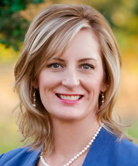

How medical practices can prepare for the post-COVID boom
By Dr. Sara Pastoor
Director of Primary Care Advancement, Elation Health
By Adam Harrison
Chief Growth Officer, Manifest MedEx
Original Publish Date: July 13, 2021
As California reopens, ambulatory medical practices across the state are gearing up for the surge of catch-up care with their patients. There’s a lot of work to do. Californians fell as much as 50% behind on medical care during the 2020 pandemic, with the volume of preventive services, such as cancer screenings, falling between 20%-40%, according to a newly released report by Manifest MedEx, California’s largest nonprofit health information network. A Kaiser Family Foundation survey found that “27% of those who say they or a family member skipped or postponed care say that either they or their family member experienced a worsening medical condition as a result,” such as mental health conditions and kidney problems.Patients are coming back with potentially more severe clinical needs and the need to catch up on missed preventive care. How can practices gear up for this moment, scaling up to deliver more care without burning out, while making the most of this opportunity to improve hard-hit finances? Our experts have some suggestions:
- Get proactive before patient visits: Try shifting your workflow to include pre-visit chart reviews for patients. The AMA estimates that pre-visit planning can save 30 minutes per day of physician and office staff time. With the help of office staff, longitudinal patient records from a health information exchange (HIE), and your electronic health record (EHR) system, it’s possible to quickly review your patient’s progress during this “missed year” to flag new hospitalizations and diagnoses, missed prescriptions and preventive services, lab results, and specialty referrals to identify action steps for the visit. The AAFP provides a helpful checklist for this kind of pre-visit planning.
- Pay special attention to your COVID cases: With HIE data, you can catch up on recovering COVID-19 patients with a few clicks. Your practice can invite these patients in for special follow-up care, prepare staff before their visits, or run campaigns to encourage them to receive a first or second vaccine dose. California Healthline recently reported on the rise of post-COVID clinics, providing specialized care to “patients who survive but continue to wrestle with a range of physical or mental effects, including lung damage, heart or neurological concerns, anxiety and depression.”
- Understand which of your patients are at the highest risk this year: Time recently reported that medical leaders are “predict[ing] a surge of cardiovascular death and disease in the months and years to come as a lagging indicator of the lifestyle changes forced upon the world by the pandemic.” Review your patient panel to see which patients should be prioritized for extra attention as your practice scales up for post-COVID demand.
- Get rewarded for smart prioritizing: Several programs reward medical practices for using HIE data to provide needed care to patients. For example, practices receiving real-time hospital admit, discharge, and transfer (ADT) notifications can easily follow up with patients within seven days after hospitalization and qualify for Medicare’s Transitional Care Management program. Practices also get 40 points added to their Medicare MIPS scores for bidirectional exchange with an HIE. And practices can use HIE data for faster and more efficient HCC coding to support accurate (RAF) scores.
With nearly four million cases in our state, the pandemic year has brought devastating outcomes for patients across California. And we’re just starting to see the lasting impact of both the COVID-19 virus and the gaps in medical care. At the same time, the tragedies of the pandemic have accelerated the demand for real-time information about patient care. Over the last year, practices often did not know when their patients tested positive for COVID-19 or were vaccinated, and they are now turning to HIEs for comprehensive patient information and insights, organized in easy-to-use tools, to support the surge in catch-up care.
While our state’s healthcare leaders are facing new and unprecedented health challenges this year, they are also leading new and innovative ways to deliver care safely and effectively to patients while supporting ambulatory providers and healthcare workers. In every medical practice, this is a moment for rethinking and reimagining the way we build back better for our communities.
Dr. Sara Pastoor is director of primary care advancement at Elation Health, the platform for innovative independent practices. Adam Harrison is chief growth officer at Manifest MedEx, California’s largest nonprofit health information network.